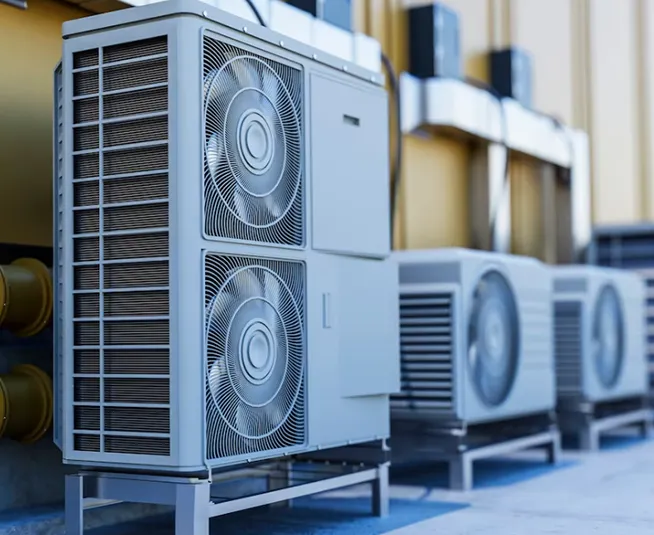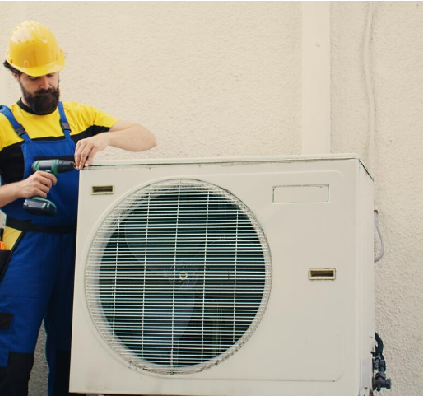What does ‘fan’ mean? Fans are devices used in large-scale industrial applications to control and improve air, fulfilling needs such as air circulation and air quality enhancement. With these devices, air circulation can be facilitated, and air quality can be improved.
What does ‘fan’ mean? This question is frequently asked by those involved in large-scale commercial or industrial activities. These fans play a vital role in ensuring the efficient, safe, and healthy operation of industrial facilities. As fundamental components of modern industry, they directly affect the continuity of production processes and the quality of working environments.
Fans are available in different types, developed for various needs. Axial or centrifugal fan varieties can be selected according to the requirements of the area where they will be used. Industrial fans increase air quality by ventilating workspaces, which is critically important, especially in environments with chemical vapors, dust, and other harmful substances.
What Does 'Industrial Fan' Mean?
Industrial fans are essential engineering devices used in many industrial applications. These fans, generally capable of producing large volumes of air flow, are used to facilitate air circulation in various industrial processes.
What does a fan do? Fans move air to facilitate circulation in an environment. Industrial fans are typically designed to circulate air in large areas, regulate temperature, or be used in specific production processes. These fans play a significant role in sectors such as plumbing, energy production, air conditioning systems, and more.
Most industrial fans contain an axial fan motor. Axial fans have a special design that moves the air flow along the axis of the fan’s rotation. This design makes them effective for applications requiring low pressure and high air flow. Axial fan motors are known for their energy efficiency and powerful performance.

Industrial fans are usually electrically powered devices. Their power source is typically mains electricity, commonly used in industrial facilities. Having a regular and reliable power source for the fans is critical to ensure continuous air circulation.
Among industrial fans, aspirators are especially important for cleaning and circulating air. An aspirator is a type of fan that sucks air from a specific area of a facility and expels it outside. Aspirators are typically used to remove pollutants from the air, expel hot air, or refresh the air in a specific area.
What is a Fan and What Does It Do?
A fan is a device that creates a pressure difference to expel air. The dictionary meaning of a fan is known as a “cleaner.” It purifies dirty air and ensures the flow of clean air. These devices operate with electricity. The air pushing and pulling power varies according to the size of the fan and its rotation speed. Fans are especially needed in industrial areas where people work intensively. Besides providing clean air circulation, these devices are important for worker productivity and comfort.
Advantages of using fans:
- Efficiency: Modern fans are designed to achieve energy efficiency, reducing operating costs.
- Variety: They come in various sizes and types suitable for different uses, such as axial fan, radial (centrifugal) fan, roof fan, and cross-flow fan. They can be chosen according to the need.
- Durability and Reliability: These fans are made of quality materials, are durable, and easy to use. They are also long-lasting.
- Environmental Control: Fans are useful for controlling the temperature and humidity balance in the environment, ensuring comfort and increasing worker productivity.
Fans have a wide range of uses. They are commonly used in various industrial and commercial areas, especially in manufacturing, HVAC systems, agriculture and food industry, chemical and petrochemical facilities, and many other areas.

How to Maintain Fans?
These types of fans require serious maintenance. Some points to be aware of include:
- Checking the oil belts at regular intervals and adding oil if there is a decrease.
- Necessary checks should be made to clean dust, dirt, or debris accumulated on the fan wheels at the air intake.
- Maintenance of fan wheels and filters is important.
Attention to these points is crucial for both health and the efficiency of the device.
